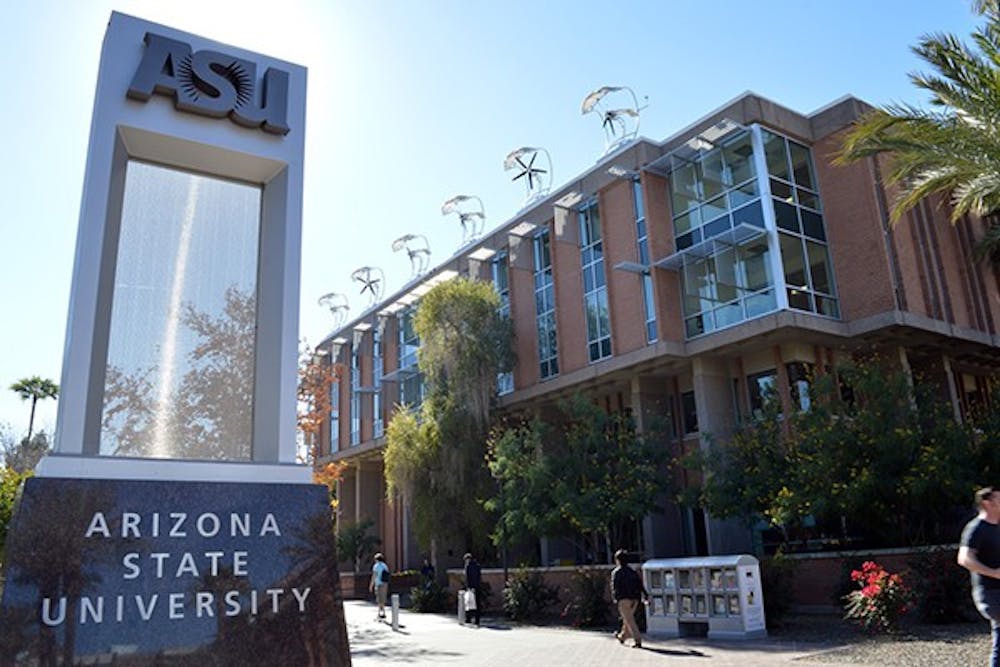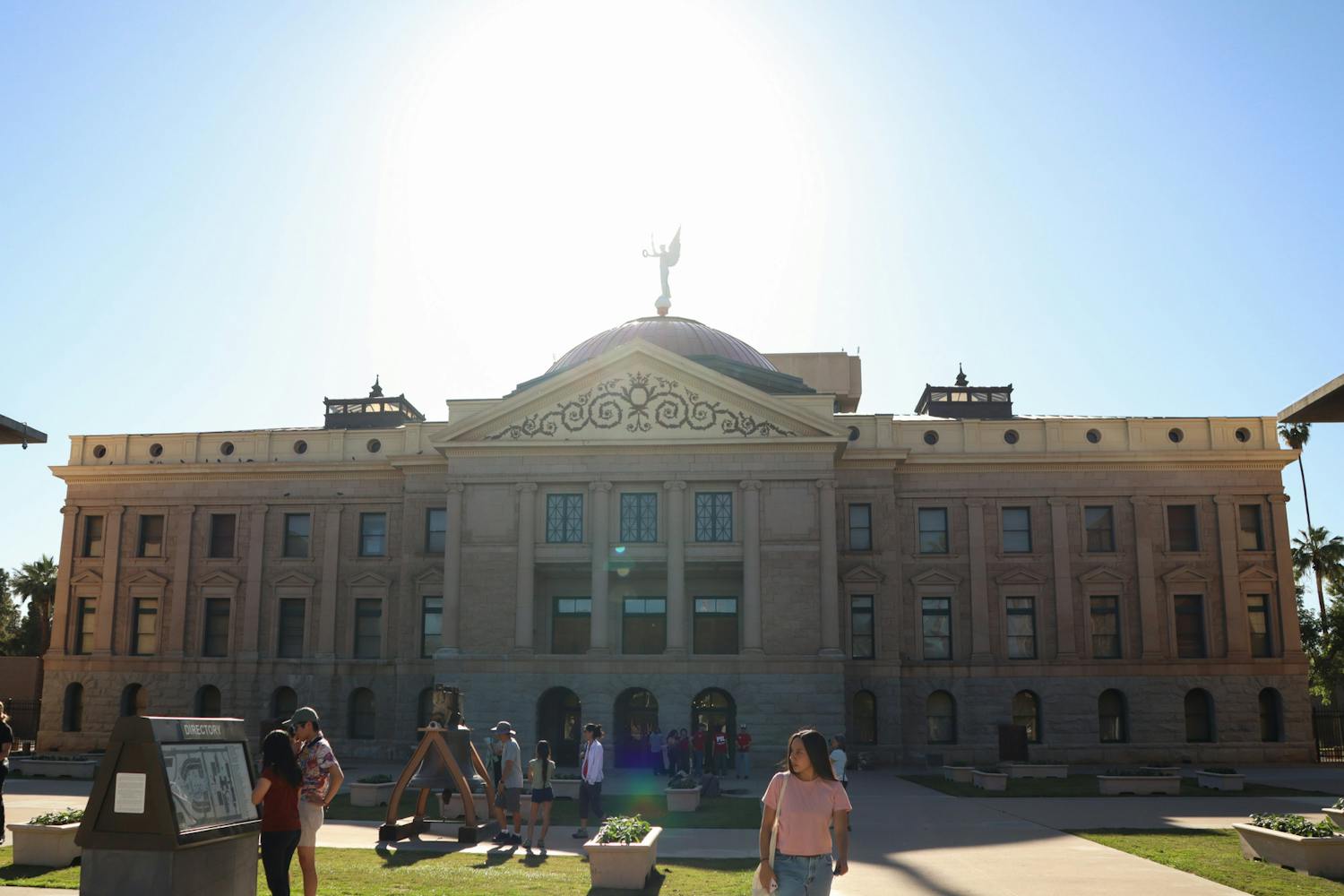
ASU recently partnered with the city of Phoenix to create programs that look to transform waste streams into economic development for the area. (Photo by Axel Everitt)
Reflecting greater ambition for expanding a sustainability agenda, Phoenix recently announced a four-year partnership with ASU to create programs and projects aimed at transforming waste streams into economic development for the region.
Composed of local businesses and government entities, the Center for Resource Intelligence will serve as a foundation for research and development to reduce waste in the Valley through recycling, lowering levels of food scraps and diminishing the amount of industrial garbage emitted by the region.
Bill Campbell, program manager with Sustainability Solutions Services at the University, helped oversee the agreement between ASU and Phoenix. He estimates that 15 cities and nearly 30 companies thus far have agreed to take part in the initiative.
“These local cities, towns and tribes showed interest in these projects,” he said. “The idea of bringing them together, in a public-private collaboration, is the purpose of the Center for Resource Intelligence.”
The center, which will be supervised by the Global Institute of Sustainability at ASU, is expected to promote economic entrepreneurship and welcome the advent of green-friendly ventures to the area, he said.
Signaling a growing movement of green proposals for the city, Phoenix will be at the forefront in getting these plans off the ground to affect real change.
“Sustainability is gaining a lot of momentum in the cities,” Campbell said. “The center helps build that momentum and accelerate that trajectory.”
Senior Policy Advisor for Sustainability for Phoenix Colin Tetreault, who teaches sustainability at ASU, has worked closely on waste-reducing strategies in the past. He’s seen the impact local projects can have on transforming the lives of citizens and regions as a whole. For example, Arcadia recently undertook a recycling project similar to those proposed by the center.
“That entire area did not have recycling,” he said. “So, we partnered with a local nonprofit (organization) to educate and provide services to all the local businesses. This has catalyzed into actual provisions of services from private providers, which is a great thing.”
Instances of these green developments will likely continue to emerge in the coming years as Phoenix and many surrounding cities engage in projects suggested by the center.
“Certainly this is a major shift, a system-level change with regard to how resources are appropriated throughout the entire area of Phoenix,” Tetreault said. “These programs offer major opportunities to transform neighborhoods. They are being driven deeper into the city’s cultural fabric.”
Aware of the robust influence these programs can have on local communities, Bill Gates, vice mayor of Phoenix, said he’s pleased the city chose ASU to collaborate with in undertaking this enterprise.
“It’s a no-brainer to be partnering with ASU on this,” he said. “Arizona State has been successful in having some of its graduates move into other sorts of business endeavors coming out of the research we’ve done. That’s one of the things I’m most excited about.”
Additionally, Gates said he expects that in creating new corporate opportunities for growth in the region, the economic value of implementing these programs will benefit the city in the future. He said he hopes the center will reach its sustainability goals and also encourage a wave of sustainable business to enter into the marketplace.
In terms of Phoenix’s potential as an economic powerhouse, Gates said he believes endeavors such as the Center for Resource Intelligence bridge the gap between public and private groups. He said it is indicative of the kind of city Phoenix will become in the next few years.
“My goal is to have the most sustainable desert city in the world,” he said. “Trash is actually a gold mine for us if we use it properly. Not only would it be creating jobs and generating revenue, but also it would be taking something seen as a negative, like a landfill, and turning it into a positive.”
Reach the reporter at shari.rose@asu.edu or follow her on Twitter @sharir55




